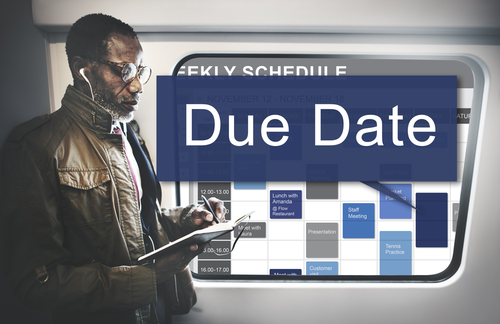Asking for a letter of recommendation can go one of two ways: really well or nowhere at all. That simple piece of paper could be your golden ticket to your next adventure, whether that be getting into the college of your choice or landing your dream job.
So, what is a letter of recommendation and how do you get the best one possible?
A recommendation letter, also called a reference letter, is a communication between a professional you have networked with in the past (professor, advisor, boss) and a professional in your prospective position (potential boss or grad school). It will need to be written by someone who can highlight your greatest characteristics and capabilities. Professionals that you may consider asking can include teachers, counselors, employers, and so on, but never send in a letter written by a family member. Keep in mind, some applications will specify the relationship between the writer and applicant. Whoever you choose, be sure that he or she knows you well enough to speak to your most impressive qualities.
Naturally, the next step to getting a great recommendation is to be great—check! Aside from that, the way you present yourself to your potential reference, regardless of your academic history, can help you cinch that high quality recommendation letter, rather than receive a flat out “no.” Here are some other dos and don’ts you should follow.
Do This: Seek someone who has known you for a good amount of time and has seen your skills and passions as they have progressed.

Rawpixel.com / Shutterstock.com
Not That: “The head of the department will look SO good as the author of my letter of recommendation.”

Cop Show / Giphy
While it’s important that the individual who writes your letter is a respectable professional, it is equally important that he or she know you, can relate to you, and can understand your goals. It’s clear when someone writes a letter out of obligation and when a person writes a letter because he or she wants to see you succeed.
Do This: Approach the person you would like to ask in a professional manner, either during office hours or through email.

Syda Productions / Shutterstock.com
Not That: “Let me just shoot Professor Dumbledore a quick text.”

Harry Potter / Giphy
Let’s not forget to mention: Don’t approach your professor when he or she is in between classes. Don’t ask your boss when you’re on the clock. And don’t ever ask anyone hungry.
Office hours are posted for a reason; utilize them! If you cannot ask in person, a humble email will do. If you choose to take that route, though, be conscious of these vital elements:
- State your name and purpose.
- Jog his or her memory by listing the ways in which you know each other. You may wish to include a class you took with him or her, a project you worked on, an assignment you excelled on, etc.
- Indicate why you believe he or she is the best person to write a letter of recommendation for you.
- Be authentic. Avoid templates.
Do This: Give the writer courteous notice.

Rawpixel.com / Shutterstock.com
Not That: “I need this by the end of the week. You got it, right?”

Power Rangers
The proper time frame is six weeks prior to the letter’s due date. If you can provide more than six weeks, do so. Just be sure to follow up as the deadline closes in. Give your professor, boss, or whomever you choose to ask plenty of time to write. Doing so will show that you are respectful, organized, and grateful for the favor you hope he or she will agree to do for you. It will also give you some time to find a Plan B if your first choice declines.
Do This: Introduce yourself, even if you think he or she remembers you.

Ivanko80 / Shutterstock.com
Not That: “He knows me and everything about me.”

Kanye West / Giphy
You’re awesome—don’t get us wrong—but your first-year professor now has new students and a lot of research going on. Give him or her some slack and a bit of context. Your introduction should detail who you are, how you met, and your favorite projects, grades, memories, and other notable efforts. These details will provide useful groundwork for the individual writing about you.
Do This: Tell your potential reference why you think he or she is the best person to write your letter.

Rawpixel.com / Shutterstock.com
Not That: “Well, I need this letter, and you were one of my teachers.”

Scott Disick / Giphy
Well, yes, you need a letter, but so do 200 other students. Unless you want your professor reciting the famous “The World Does Not Revolve Around You” Lecture, don’t expect a letter just because you’ve asked. The most important factor to remember when making this request is to be considerate of his or her time. There’s a chance that your first-choice reference may not feel like the best person for the job. Perhaps he or she has other commitments that take priority.
A well-written letter of recommendation is a way to convey your greatest attributes to your potential boss or grad school through someone who has seen them first hand. These letters are often the difference between acceptance and rejection. Having a third-party speak to your prospective employer or school shows your true character. After all is said and done, don’t forget to thank the writer of your letter. Best of luck on your new endeavor!

